6 Ways to Protect Your Personal Information While Traveling

Years ago when you traveled, the only items you worried about when it came to protecting your personal information were your credit cards and passport. As technology has advanced and everything has moved to digital, it’s more important than ever to protect your personal information from hackers.
Just one connection to a free WiFi hotspot can result in your personal information being compromised.
As a digital nomad, it’s more important than ever to protect the personal information that you carry around on your computer. From financial information to business plans, you want to keep your documents private.

How to Protect Your Personal Information While Traveling
With these proven methods, you can protect your personal information better and decrease the risk of being compromised. It’ll also save you the large headache of dealing with the aftermath of being hacked.
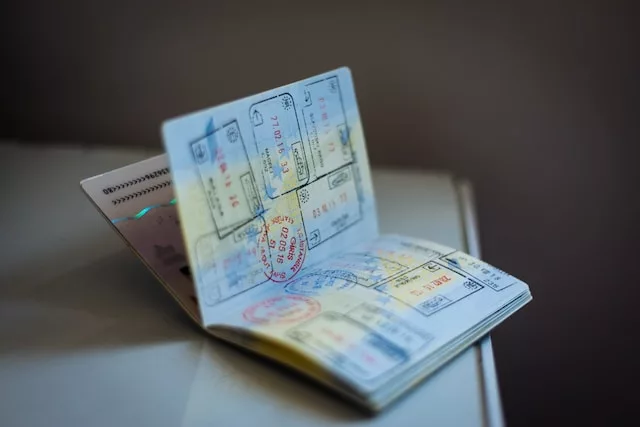
Travel Documents
Your passport is the most important item you have to protect. Everything else is easily replaceable; a lost passport will cause you major problems while abroad.
The first mistake people make is walking around with their passport when they don’t need it. If possible, lock it in a safe wherever you are staying. If you don’t have a safe, find another place to hide it or somewhere you can lock it up with your own padlock. When walking around in the city sightseeing or whatever, you risk having your passport pickpocketed.
When you do have to travel with your passport, then keep it on your person. Don’t keep it in your suitcase or backpack. Always keep it close to you on trains, buses, and when walking to your destination.
Lastly, always take two color copies of your passport with you before traveling. Just in case your passport is lost or stolen, you have a copy to show your embassy. This makes it much easier to receive a replacement. You should keep each copy in a separate piece of your luggage to avoid losing them.
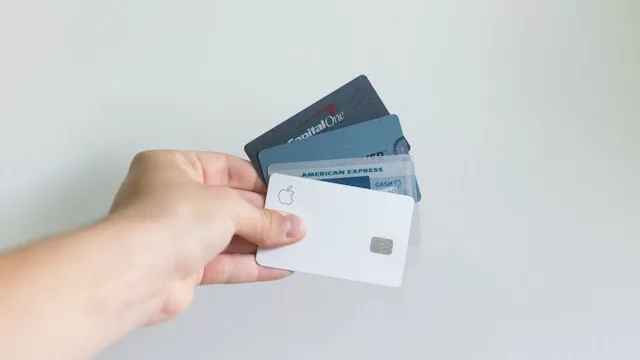
Credit Cards
The first you should do to protect your information is to avoid using your debit card while traveling abroad. If stolen, this gives people direct access to your bank account. Always use a credit card or cash to pay for things. At least if a credit card is stolen, you’re protected and the transactions can be canceled.
The only time you should use a debit card is to take money out from an ATM. When using an ATM, make sure to go to a bank location or use a bank ATM. If it looks sketchy, avoid using it.
Another tip is to bring multiple credit cards with you when traveling. When you go out, only bring one and leave the rest at home. This is in case it’s lost or stolen. Then you have a backup that you can use while waiting for your replacement card.
Before you travel, leave your bank and card information with someone you trust at home. If your cards are stolen, then you can call your friend or family for the card information for your bank. This will make the process a little less stressful.
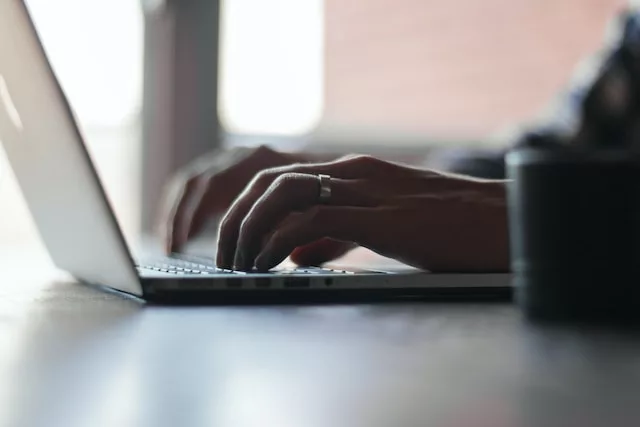
Passwords
If you were to write down all of your passwords, you would probably fill up a small notebook. So, against the advice of some professionals, many people use the same password for multiple accounts so they don’t forget it. To make life easier, we also tend to save our passwords on our computers.
A good practice to protect your personal information is to routinely change your passwords. Before you travel, when you come home from traveling, or if you go to different countries while traveling, you should change your most important passwords.
Never share passwords over unencrypted messages! This just invites hackers to access your personal information, especially if you’re on an unsecured wifi network.
If you have a problem remembering all of your passwords, use a password vault like LastPass. This allows you to have a master password so you don’t have to remember all of your different passwords. You can also share temporary passwords with people so you don’t give out your personal information.
Lastly, make sure that all of your gadgets (computer, phone, tablet, etc.) are password protected. The last thing you want is for someone to swipe your laptop and immediately have access to all of your personal information.
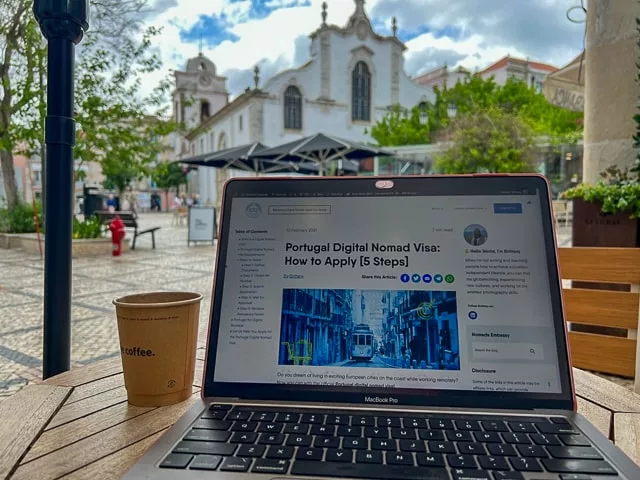
Wifi Networks
Whether you’re traveling for pleasure, business, or living life as a digital nomad, chances are that you’ll connect to some free wifi at some point. It may be in a cafe that you’re working from or at the airport when you first land. While most networks are safe and secure, you should always be on guard and careful.
The first thing you should know about protecting your personal information when connecting to wifi networks is to never use a public network. You know the ones we’re talking about. Those free networks on the beach or in a public park. These networks are not at all secure and should be avoided at all costs.
If you decide to work from somewhere with public wifi, it’s always best to use your phone as a hotspot. At least then you know your network is secure.
When you’re connected to a wifi network with a password, always look to see that the web address you’re browsing includes HTTPS in the beginning. If using Google Chrome, you’ll also see a little padlock next to it. This means that you’re browsing a secure webpage.
When you aren’t using your computer or phone to connect to wifi, you should turn off your BlueTooth and wifi search. Sometimes hackers can access your information simply because you’re broadcasting a signal.
One of the most essential things every traveler should have is a virtual private network or VPN. This is the best way to protect your personal information when connecting to different wifi networks. You can find free or paid VPNs online. They’re easy to use and so important to have while abroad.
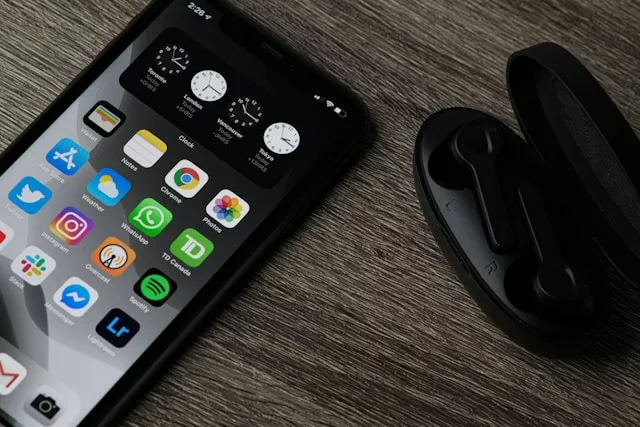
Update Apps and Software
Before you travel, make sure all of your apps and software are up to date. The latest versions always have increased security and bug fixes that may compromise your personal information.

Start Protecting Your Personal Information
With these simple and proven ways to protect your personal information, you’ll feel less stressed while traveling or living abroad. From your travel documents to computer passwords, there are many ways to stay protected and secure.
Looking for more tips and tricks when it comes to traveling? Join Nomads Embassy: The Official Global Digital Nomad Network to connect with fellow travelers.
Frequently Asked Questions
Articles like this can be helpful, but you may still have some questions about how to protect your personal information while traveling.
How can travelers safely manage their passwords without using a password manager?
Travelers wary of using a digital password manager can secure their passwords by memorizing them, using a passphrase, or writing them down in a disguised manner in a secure, private place. It’s key to avoid obvious patterns and include a mix of characters, numbers, and symbols for strength.
What are the specific risks associated with using public wifi networks beyond general security concerns?
The risks associated with using public wifi networks include man-in-the-middle attacks, where attackers intercept communication between the user and the connection point, and unencrypted networks, which can expose personal information to hackers. Using a VPN can mitigate these risks by encrypting data.
How should travelers secure their mobile devices beyond password protection?
Beyond password protection, travelers should encrypt their mobile devices to protect data in case of loss or theft. Enabling features like ‘Find My iPhone’ or ‘Find My Device’ for Android can help locate lost devices. Additionally, installing reputable security apps can provide an extra layer of protection against malware and phishing attacks.
You may also enjoy

A new digital nomad visa has popped up for remote workers… but it’s not like traditional remote worker visas we’ve talked about before. Launched in February 2026, the Bhutan digital…
by Brittany
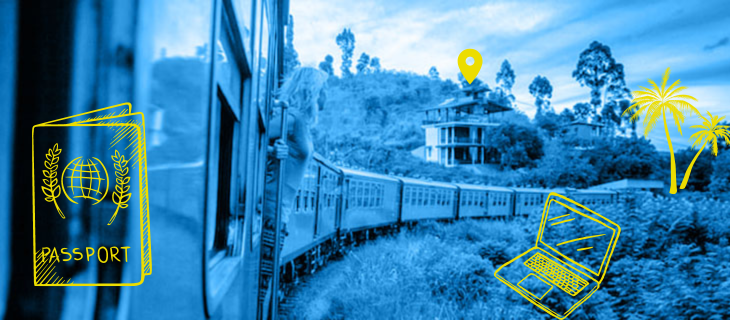
Do you dream of living and working remotely from Sri Lanka for a year? See if you can with our free Sri Lanka digital nomad visa eligibility check! Simply answer…
by Brittany

Are you planning to apply for the Portugal digital nomad visa? Then you’ll want to read about the new eligibility changes and Portugal digital nomad visa updates for 2026. Each…
by Brittany
